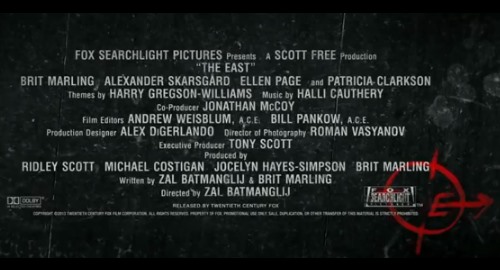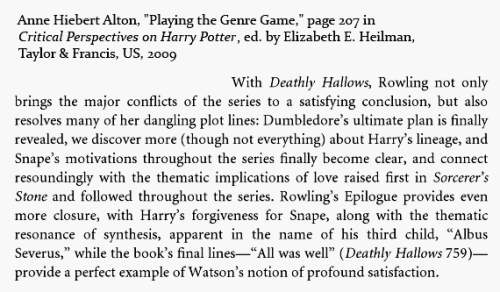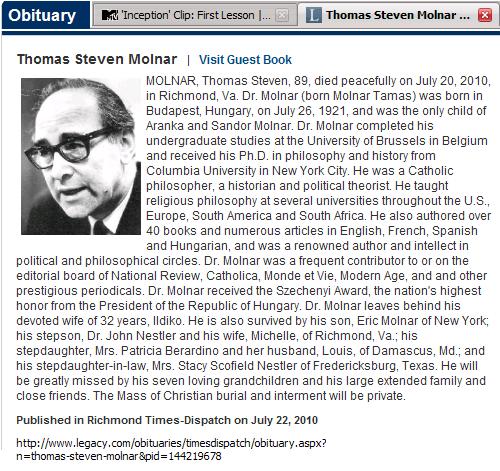"Spiel is nicht Spielerei." — Friedrich Fröbel
Tuesday, November 24, 2020
Play Station
Sunday, October 1, 2017
A Rosebud for Newhouse
See the previous post and, from some April 1 ART WARS remarks …
See also reviews of a new Ellen Page film, "Flatliners."
Tuesday, October 8, 2013
New Game
"The game, which features psychological, spiritual,
and thriller elements, is centered around questions
about what happens after death…. The game's
producer noted that players might be able to find out
'what lies beyond' after playing it….
… Beyond was the final project of composer
Normand Corbeil, who died of pancreatic cancer
on 25 January 2013."
For related material from 25 January 2013, see…
For such a touch, instead of game star Ellen Page,
I prefer music star Reba McEntire —
Image posted here on October 4th,
the Feast of St. Francis of Assisi.
Related material: A Bishop for Ellen.
Friday, October 4, 2013
Roll Credits
Friday, May 31, 2013
A Very Strange Enchanted Girl
"When it comes down to it,
I think we all just want
to love and be loved."
— Ellen Page in Vanity Fair online this afternoon
See also lyrics to a tune by Dvořák and eden ahbez.
Thursday, December 20, 2012
Saturday, March 31, 2012
The Kick
"The inception of critical thought, of a philosophic anthropology, is contained in the archaic Greek definition of man as a 'language-animal'…."
— George Steiner, Real Presences , U. of Chicago Press, 1991, p. 89 (See also Steiner on Language.)
"To some, Inception is a film about the creative process, specifically filmmaking, with Cobb as the director, Saito the producer, Ariadne the screenwriter, Eames the actor, and so on. To others the entire movie is a dream in that the film supports Carl Jungs' dream analysis; with all of the supporting characters acting as classical archetypes to Cobb's multiple personalities (which would also justify the lack of development in the supporting characters). The fact that Inception , in the few months since its initial release, has already given rise to so much discussion and critical thought is much more revelatory than whether or not Cobb is still dreaming."
— Russell Espinosa at FilmFracture.com, Jan. 1, 2011
See also Piaf's "Rien de Rien " in a Log24 post from Jan. 19, 2012.
Friday, March 30, 2012
Steiner on Language
March 28 review in the Times Literary Supplement of
George Steiner's new book The Poetry of Thought—
"If this new book opens with the concession that
language has neither the performative power of music
nor the elegant precision of mathematics,
it is language, for Steiner, that defines the human.
The survey accordingly begins from the ancient Greek
view of man as the 'language-animal.'"
A check of this phrase yields, in a 1969 Steiner essay,
"The Language Animal," a Greek form of the phrase—
In short, the least inadequate definition we can arrive at
of the genus homo , the definition that fully distinguishes
him from all neighbouring life-forms, is this:
man is a zoon phonanta , a language-animal.
— p. 10 in Encounter , August 1969 (essay on pp. 7-23)
After introducing "language-animal" as a translation of "zoon phonanta " in 1969,
Steiner in later writing went on to attribute this phrase to the ancient Greeks.
"The inception of critical thought, of a philosophic anthropology,
is contained in the archaic Greek definition of man as a
'language-animal'…."
— George Steiner, Real Presences , U. of Chicago Press, 1991, p. 89
"… the 'language-animal' we have been since ancient Greece
so designated us…. "
— George Steiner, Grammars of Creation , Yale U. Press, 2002, p. 265
Despite this, there seems to be no evidence for use of this phrase
by the ancient Greeks.
A Google search today for zoon phonanta (ζῷον φωνᾶντα)—

There are also no results from searches for the similar phrases
"ζωον φωναντα," "ζωον φωνᾶντα," and "ζῷον φωναντα."
Friday, September 23, 2011
Times Square Church
Friday, June 10, 2011
Hierophant
Some background for yesterday’s posts:
Midrash for Gnostics and related notes,
as well as yesterday’s New York Lottery.
…. “We seek
The poem of pure reality, untouched
By trope or deviation, straight to the word,
Straight to the transfixing object, to the object
At the exactest point at which it is itself,
Transfixing by being purely what it is….”
— Wallace Stevens (1879-1955),
“An Ordinary Evening in New Haven” IX
“Reality is the beginning not the end,
Naked Alpha, not the hierophant Omega,
of dense investiture, with luminous vassals.”
— Wallace Stevens,
“An Ordinary Evening in New Haven” VI
“A hierophant is a person who brings religious congregants into the presence of that which is deemed holy . The word comes from Ancient Greece, where it was constructed from the combination of ta hiera , ‘the holy,’ and phainein , ‘to show.’ In Attica it was the title of the chief priest at the Eleusinian Mysteries. A hierophant is an interpreter of sacred mysteries and arcane principles.”
Weyl as Alpha, Chern as Omega—
Postscript for Ellen Page, star of “Smart People”
and of “X-Men: The Last Stand“— a different page 679.
Your assignment, should you choose to accept it—
Interpret today’s NY lottery numbers— Midday 815, Evening 888.
My own bias is toward 815 as 8/15 and 888 as a trinity,
but there may be less obvious and more interesting approaches.
Monday, May 9, 2011
May Tricks
"I was bewitched by stained glass, bewitched by cathedrals"
There are worse things to be bewitched by.
A story on stained-glass windows dated April 28, 2008, in The Washington Post mentions—
"the grand gestures of LeCompte's artistry and the small touches, such as the spinning-top-size crystal that LeCompte sneaked into the magnificent West Rose"
From this journal on May 7—
Saturday, May 7, 2011
Turn, Turn, Turn

Sunday, May 1, 2011
Quarantine Story
A link in the previous post to Delos in this journal mentions physicist John Cramer.
His daughter Kathryn's weblog mentions the following story—
Graffiti in the Library of Babel • David Langford
—from her forthcoming anthology Year's Best SF 16 .
From the Langford story—
"'I suppose we have a sort of duty…' Out of the corner of her eye Ceri saw her notes window change. She hadn't touched the keyboard or mouse. Just before the flatscreen went black and flickered into a reboot sequence, she saw the coloured tags where no tags had been before. In her own notes. Surrounding the copied words 'quarantine regulations.'"
Related material from this journal last Jan. 9 —
"Show me all the blueprints."
– Leonardo DiCaprio in "The Aviator" (2004)

DiCaprio in "Inception"
In the "blueprints" link above, DiCaprio's spelling of "Q-U-A-R-A-N-T-I-N-E" is of particular interest.
See also a search for Inception in this journal.
A post on a spelling bee at the end of that search quotes an essay on Walter Benjamin—
This blissful state between the world and its creator as expressed in Adamic language has its end, of course, in the Fall. The “ignorance” introduced into the world that ultimately drives our melancholic state of acedia has its inception with the Fall away from the edenic union that joins God’s plan to the immediacy of the material world. What ensues, says Benjamin, is an overabundance of conventional languages, a prattle of meanings now localized hence arbitrary. A former connection to a defining origin has been lost; and an overdetermined, plethoric state of melancholia forms. Over-determination stems from over-naming. “Things have no proper names except in God. . . . In the language of men, however, they are overnamed.” Overnaming becomes “the linguistic being of melancholy.”7
7 Walter Benjamin, “On Language as Such and On the Languages of Man,” Edmund Jephcott, tr., Walter Benjamin , Selected Writings , Volume I: 1913-1926 , Marcus Bullock and Michael W. Jennings, eds., Cambridge, MA, Harvard University Press, 1997, p. 73.
Compare and contrast with a remark by a translator mentioned here previously —
I fancy, myself, that this self-consciousness about translation dates approximately from the same time as man's self-consciousness about language itself. Genesis tells us that Adam named all the animals (just as in Indian tradition the monkey-god Hanuman invented grammar by naming all the plants in the Garden of Illo Tempore). No doubts, no self-consciousness: "Whatever Adam called every living creature, that was the name thereof." (Genesis II, 19). But after the expulsion from Paradise I see Adam doubting the moment the possibility occurs that another name might be possible. And isn't that what all translators are? Proposers, in another language, of another name ?
— Helen Lane in Translation Review , Vol. 5, 1980
Tuesday, March 1, 2011
Ariadne’s Clue
Related symbolism from Plato’s Cave—
Recall that Ariadne in “Inception” is played by Ellen Page .

“Show me all the blueprints.”
— Howard Hughes, according to Hollywood
Saturday, August 7, 2010
Camp Inception
With a nod to Larry Doyle's "Sleeper Camp"—
From the Mathcamp Reunion Schedule for Saturday, July 24, 2010—
2:30-3:30 PM — John Conway Colloquium
3:30-5:30 PM — Relays: Heaven, Hell, and Purgatory!
In this journal on Saturday, July 24—
Playing with Blocks (noon) and The Leonardo Code (1 PM).

A happy Mathcamper defines Heaven, Hell, and Purgatory—
…Heaven and Hell relays. your team starts in hell, when you get one right, one person can go to heaven and work on heaven questions, but first they have to pass through purgatory. aka this means entertain the people running purgatory. for me this meant dancing in the middle of the gym. i danced and sung the YMCA, which they deemed sufficient (thankfully).
— Imaginary Thoughts and Irrational Ideas weblog
Note in the Mathcamp schedule the Friday night Shabbat dinner and the religious activity on Sunday— a "mini-puzzle hunt."
Monday, July 26, 2010
A Dream for Molnar
Saturday, April 14, 2007
Saturday April 14, 2007

Related material:
The Log24 entry for
this date last year
(Good Friday and
the opening date of
HARD CANDY),
and
Friday, June 2, 2006
Friday June 2, 2006
to win American spelling bee
Weltschmerz
and the
Ursprache

From eudaemonist.com,
a quotation from
Paul Zanker's
The Mask of Socrates:
Benjamin was a Jewish Marxist. For a Jewish perspective on spelling, see Log24, Nov. 11, 2005. For a leftist perspective on Benjamin and last night's crucial spelling word "Ursprache," see "Ground Zero, an American Origin," by Mary Caputi (Poroi, 2, 1, August 2003):
The Baroque sensibility of ruin emphasizes a meaninglessness that too many possibilities deliver. Aimlessness and malaise make life into exhausting toil in the absence of coherence. In overdetermined realities, meaning appears arbitrary and erratic, as the world's connection to God seems lost or withheld. At the extreme, everyday life is as full of noise and commotion as it is devoid of intrinsic meaning. Connections among people wither with the onset of overabundance and despair. Recognition of this condition induces acedia, a weariness of life. Here the malaise of modernity and ruins ties to Benjamin's interest in Trauerspiel, German tragic drama, and the tragedies of Shakespeare. All respond to a plague of lost spiritual connections and a meaningless earthly existence where incessant toil and trouble — "tomorrow and tomorrow and tomorrow" — contribute to a chronic, wearing sense of pain.
Benjamin's interest in this form of melancholia, from suffering a sort of spiritual exile, is evident in his 1916 essay "On Language as Such and On the Language of Man." In this text, he explains that the Ursprache, our "original" language, is "blissful" precisely because it lacks the arbitrariness that results from overdetermination. Ur-speech is Adamic language, the linguistic power that God gives to Adam to confer identity on the material world. It contains no arbitrary component, but reveals the unity between God's divine plan and the world as it exists. Before ruins and fragments, there is no overdetermination to induce the melancholy of acedia. Instead the originary language implies a unity of transcendent and immanent realms. "With the creative omnipotence of language it begins, and at the end of language, as it were, assimilates the created, names it. Language is therefore both the creative and the finished creation; it is word and nature."6
This blissful state between the world and its creator as expressed in Adamic language has its end, of course, in the Fall. The "ignorance" introduced into the world that ultimately drives our melancholic state of acedia has its inception with the Fall away from the edenic union that joins God's plan to the immediacy of the material world. What ensues, says Benjamin, is an overabundance of conventional languages, a prattle of meanings now localized hence arbitrary. A former connection to a defining origin has been lost; and an overdetermined, plethoric state of melancholia forms. Over-determination stems from over-naming. "Things have no proper names except in God. . . . In the language of men, however, they are overnamed." Overnaming becomes "the linguistic being of melancholy."7
6 Walter Benjamin, "On Language as Such and On the Languages of Man," Edmund Jephcott, tr., Walter Benjamin, Selected Writings, Volume I: 1913-1926, Marcus Bullock and Michael W. Jennings, eds., Cambridge, MA, Harvard University Press, 1997, p. 68. 7 Ibid., p. 73.
For a Christian perspective on Adamic language, see Charles Williams's The Place of the Lion.
Float like a butterfly,
sting like a
Monday, April 17, 2006
Monday April 17, 2006
Sub Specie Aeternitatis
"Pynchon's mind is the steel trap
of American literature."
— Lorrie Moore, from
a page linked to in
"Eternal," an entry
of April 12
Related material:
Friday, April 14, 2006
Friday April 14, 2006
Last Temptation:
Click on picture for details.
“Little Red Ridin’ Hood,
You sure are lookin’ good….”
See also today’s Log24
guestbook entries.


















